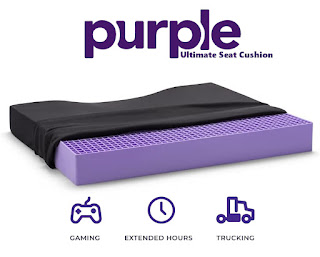TopSpin 2K25 may look polished, but its long-term success hinges on one thing: intuitive, responsive controls. Without them, frustration overshadows presentation, and players remember the struggle more than the fun. This is something we've pointed out before, but TopSpin 2K25 is a prime example.
The Promise of TopSpin 2K25
After more than a decade away, the TopSpin franchise returned with TopSpin 2K25, promising authenticity, sleek visuals, and the thrill of competitive tennis. Reviews highlight its strong presentation and realistic atmosphere, but beneath the surface lies a critical issue: controls that feel more like a barrier than a gateway.
Games like this thrive when players can pick up a controller and immediately feel connected to the sport. Tennis is about rhythm, timing, and instinct. If the controls demand excessive memorization or punish players with inconsistent mechanics, the immersion collapses.
When Controls Become a Roadblock
Players have voiced frustration with TopSpin 2K25’s timing-based system. Even with an in-game coach guiding newcomers, the learning curve is steep. Worse, mechanics like the swing meter don’t always respond to button release as expected. Landing in the “perfect” zone but watching the shot misfire isn’t just disappointing—it’s discouraging.
This isn’t a matter of difficulty alone. It’s about trust. When players feel the game doesn’t respond to their inputs reliably, paranoia sets in. They remember the frustration, and future titles inherit skepticism before they’re even played.
Why Controls Matter More Than Graphics
No matter how stunning the visuals or how authentic the animations, controls are the foundation of player experience. A game can look like Wimbledon in 4K HDR, but if swinging a racket feels like wrestling with the controller, players won’t stick around.
Good controls:
• Empower instinctive play. Players should feel like they’re reacting to the ball, not fighting the interface.
• Encourage mastery. A learning curve is fine, but it should reward practice, not punish persistence.
• Build loyalty. When controls feel natural, players return for more matches, more seasons, and more sequels.
A Plea for Accessibility
This was meant to be a review at the time of the release, but the controls turned it into a letter. Developers, if you want the TopSpin 2K franchise to thrive beyond its launch window, make the controls a partner, not an obstacle.
• Simplify mechanics so timing feels fair and responsive.
• Ensure meters and release points behave consistently.
• Offer scalable difficulty that teaches without overwhelming.
Players don’t need hand-holding, but they do need confidence that their inputs matter. Without that, the game risks being remembered not for its revival, but for its frustration.
TopSpin 2K25 had the potential to be the definitive tennis game of this generation. But success isn’t about graphics, authenticity, or even career modes—it’s about controls that invite players in and keep them engaged in the action. If the controls remain a stumbling block, the franchise risks alienating the very audience it worked so hard to win back. Having an option for arcade-style controls would've even helped those who wanted in on the fun without the complication. The only way I see them winning back some supporters is for them to release a demo ahead of the next release to showcase improved controls.
Want to try the game yourself? Play for free for a limited time, now!















.gif)








